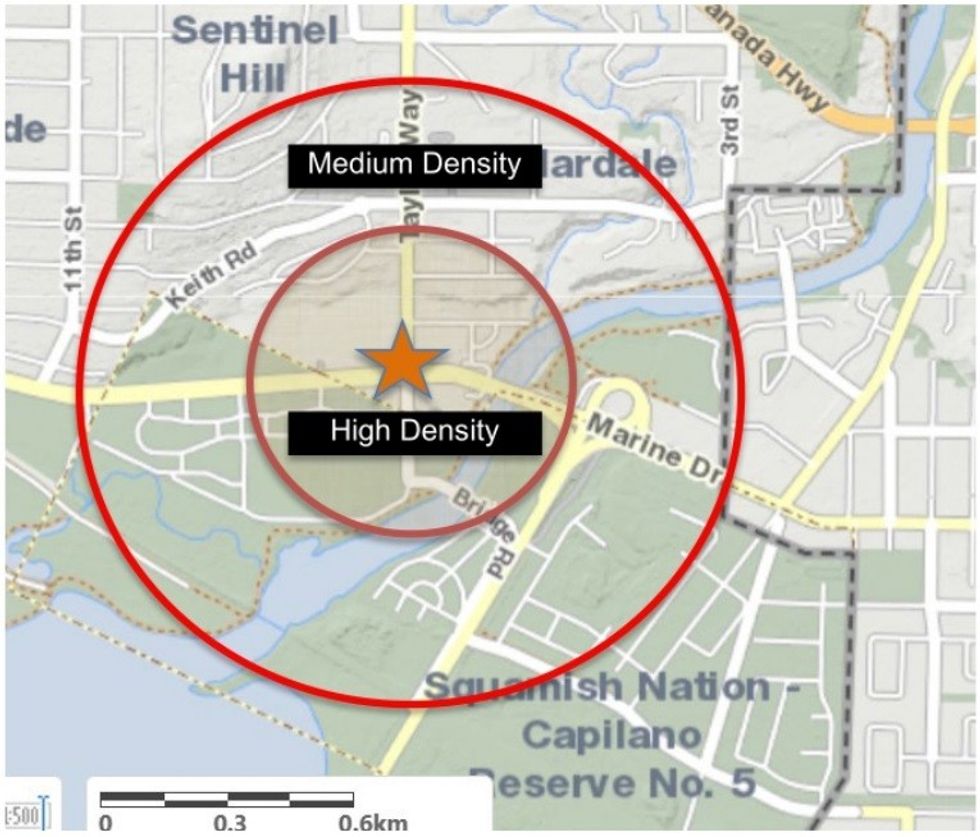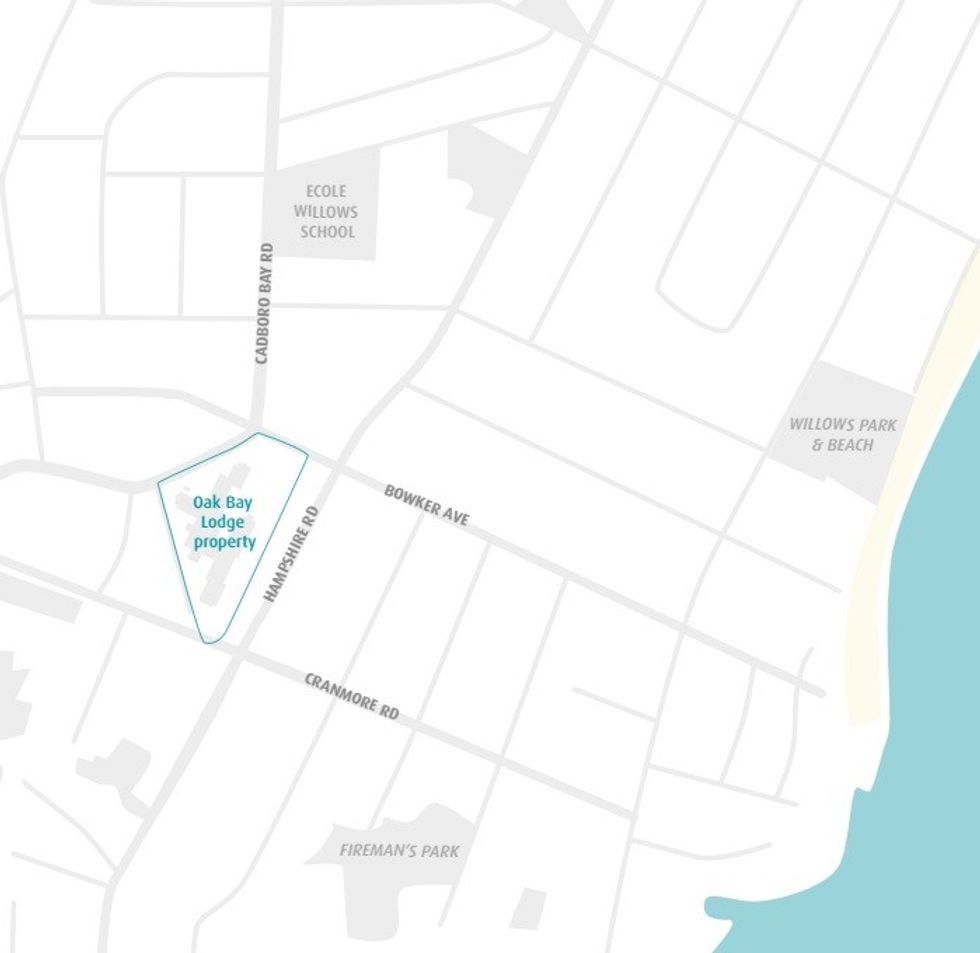Ever since Premier David Eby announced the Housing Supply Act in the fall of 2022 and began setting housing supply targets for municipalities across British Columbia, one of the key questions has been what the consequences would be if municipalities failed to meet their targets. Today, we got an answer.
This morning, Minister of Housing and Municipal Affairs Ravi Kahlon issued a statement outlining several "directives" for West Vancouver and Oak Bay, both of which were part of the first cohort of municipalities to receive housing supply targets and both of which missed their targets by a wide margin.
West Vancouver had a first-year target of 220 net new units completed, but only reached 58, while Oak Bay had a first-year target of 56 and only got to 16. Numerous other municipalities also missed their targets, including Vancouver, but West Vancouver and Oak Bay were the two that missed their target by the largest margin, hitting less than 30% of their targets. (Since targets are based on completions, they largely reflect policies already in motion before the new targets were issued.)
In late-January, the Province appointed each of the two municipalities a special advisor — Ron Mattiussi for West Vancouver and James Ridge for Oak Bay — to conduct a review of why they missed their targets by so much. The advisors reviewed things such as development approval processes, land use planning, and housing policies. Kahlon’s orders stem from those advisor reports and are as follows:
West Vancouver
- By Sept. 30, 2026, amend its Official Community Plan Bylaw and Zoning Bylaw to modify Local Area Plans to increase density in Ambleside and Dundarave Village; and
- By Dec. 31, 2026, amend its Official Community Plan and zoning bylaws to create a local area plan for the Park Royal-Taylor Way area, with additional, sufficient density to support its housing target order. The plan should enable housing that aligns with best practices for transit-adjacent housing as set out for transit-oriented development areas (TOAs) in the province.
Oak Bay
- Amend its Development Application Procedures bylaw to delegate minor variances to municipal staff by Jan. 31, 2026, which is consistent with past municipal staff reports and is a practice used in many other jurisdictions; and
- Amend its Parking Facilities bylaw to better align multi-unit residential parking requirements with best practices, to a minimum of one parking stall per unit where the bylaw currently requires a minimum of more than one parking stall per unit, by Jan. 31, 2026.
According to Kahlon, the directives have yet to be officially issued, but he has notified Council in both municipalities that he intends to issue them and that the municipalities will have 30 days to submit written responses to those directives before they are issued, as permitted under the Housing Supply Act.
"Let me be clear: This is not about punishing communities or removing authority from locally elected municipal councils," said Kahlon, addressing a recurring criticism of the suite of legislation the Province has introduced over the past two years. "The goal of local housing targets is centred around working with municipalities to remove unnecessary barriers to affordability and get more homes built for people faster, and ensuring we are building healthy and economically vibrant neighbourhoods for people."
"Every community and every local government has a role to play as we work together to solve the housing crisis, and make sure that our children and grandchildren can build a good life in BC in homes they can afford," added Kahlon. "That's why we have been working closely with municipal councils throughout the province to set housing targets that will strengthen communities for the people who live in them for generations to come. I've been encouraged by the work of the majority of councils and the positive changes they have made, which are allowing them to meet or exceed their targets."
While the two local governments may not like the forthcoming orders — Mayor of West Vancouver Mark Sager has been vocal of the housing targets — and the top-down approach, the orders Kahlon announced today are just a small fraction of what was recommended by the special advisors, both of whom were surprisingly direct with their observations.
West Vancouver
In his report, Ron Mattiussi said that West Vancouver "has had a well-deserved reputation as an affluent enclave resistant to change."
"The current Mayor and Council seem somewhat supportive of increasing housing stock; however, there is strong resistance to any form of densification that impacts the character of neighbourhoods in West Vancouver," he said. "This resistance manifests through a consistent reliance on public input and multiple referrals that, with most local government organizations, would be unnecessary. The current staff are highly qualified and professional; the issue is more of the tone set by this and previous Councils."

Mattiussi also said that West Vancouver has a "unique development application process [that] requires a 'preliminary proposal application' and a public meeting before Council considers an application in specific areas, which increases cost, time and uncertainty" and that "The District of West Vancouver is concerned with land values and increased unit sizes for implementing provincial policy guidelines on SSMUH site standards."
Recommendations he then made included that the Park Royal/Taylor Way area be designated as a Transit-Oriented Development Area, the need for multiple revisions and public meetings to be eliminated, specific zoning in residential areas to differentiate between single-family lot types to be considered, the upcoming official community plan review to be expedited with provincial targets incorporated, and other changes towards simplifying its policy framework.
West Vancouver Special Advisor Report
Oak Bay
In his report about Oak Bay, James Ridge said that there was "no evidence that Oak Bay is deliberately trying to circumvent or thwart Bill 44 or any other provincial legislation," but that there are "processes, practices, and other circumstances that, in our professional opinion, hinder housing approval in the District." Those include a "longstanding reputation for being anti-development," an "outdated OCP and misaligned zoning" that requires rezoning for most projects, and "politicizing approvals" by requiring minor variances be brought to Council.
"One of the key issues facing Oak Bay is the District's reputation," he said. "Oak Bay has a powerful and long-established reputation for being unenthusiastic about development. This is an inevitable consequence of the District's low growth for decades. We heard repeatedly from people that they had paid a premium to live in Oak Bay so they would not have to experience growth or change. As with all longstanding reputations, Oak Bay's reputation cannot be changed overnight; however, we believe there are things the District can do to encourage more housing and signal to the development community that Oak Bay is interested in and supportive of adding housing."

Ridge identified the 40-acre Cedar Hill Corners-UVic site, the four-acre Oak Bay Lodge site, and District-owned parking lots on Bee Street as significant opportunities for more housing. He noted that the Cedar Hill Corners site would require collaboration with the University of Victoria and that the District has discussed the Oak Bay Lodge site with the Capital Regional District.
Other recommendations Ridge made include meeting semi-annually with the development industry in order to strengthen relationships, conducting an analysis of the land economic impact of up-zoning, exploring housing opportunities on municipally-owned land adjacent to the Oak Bay Recreation Centre, having an intake planner dedicated to dealing with incoming applications, and expanding service hours.





















